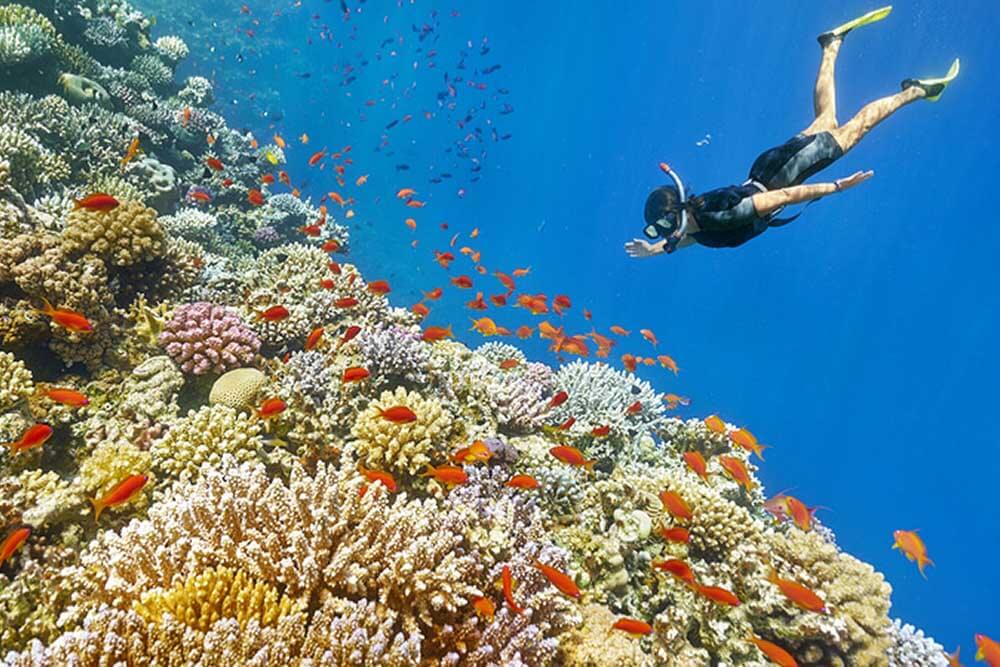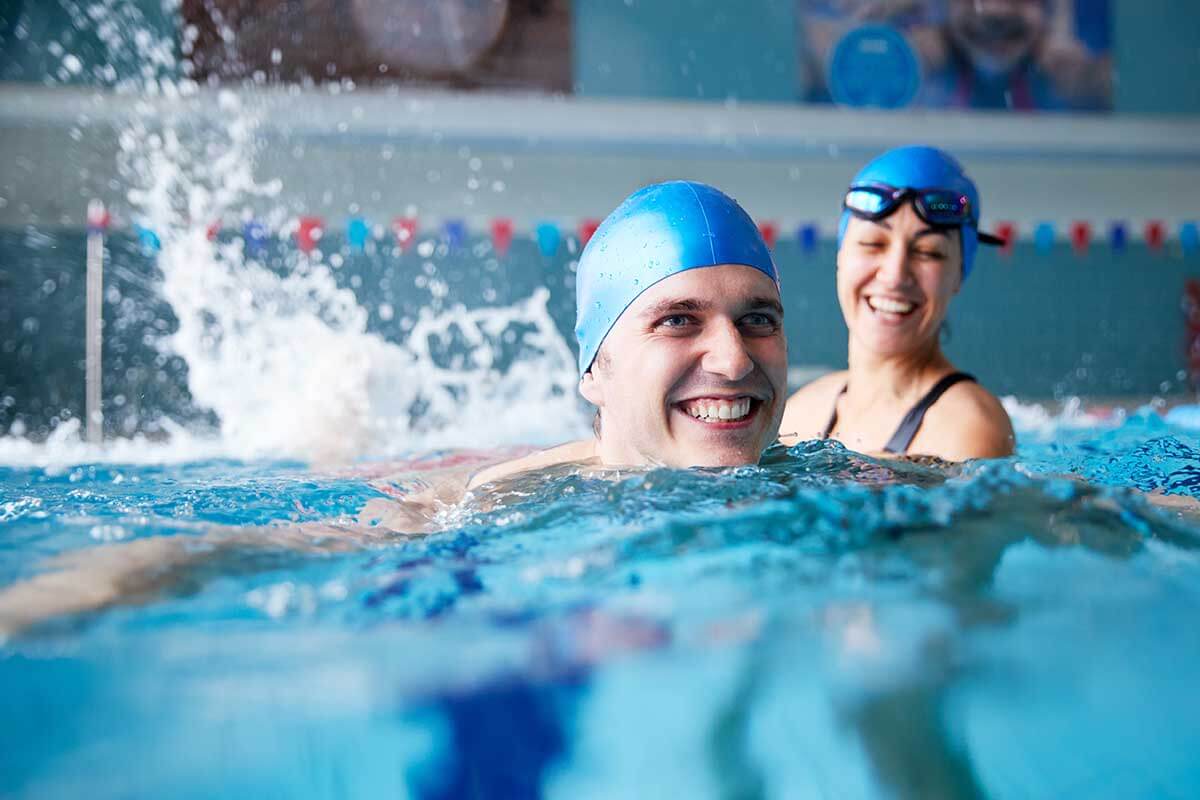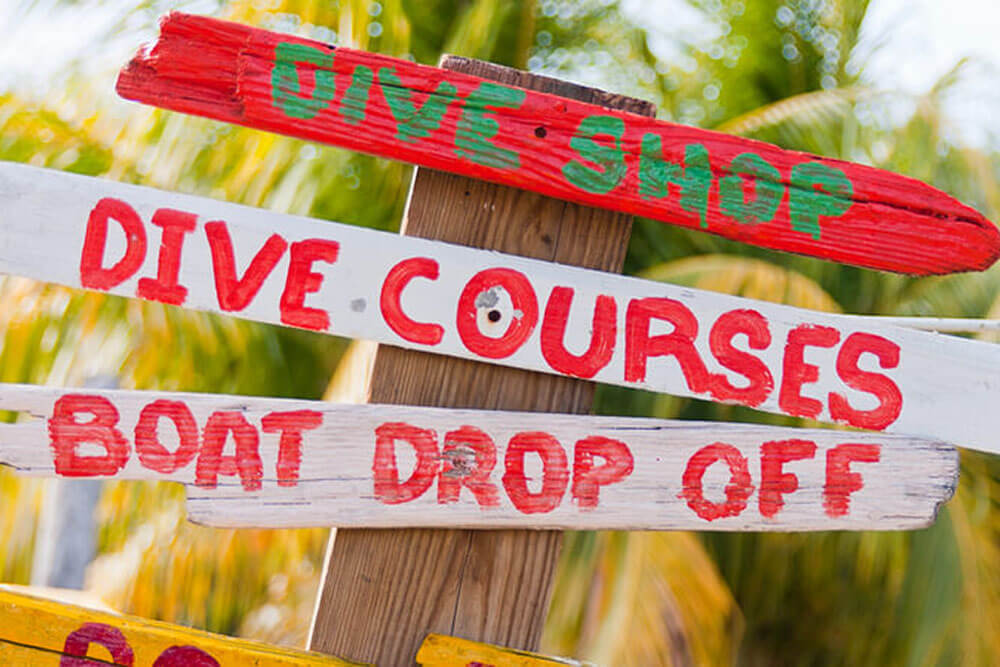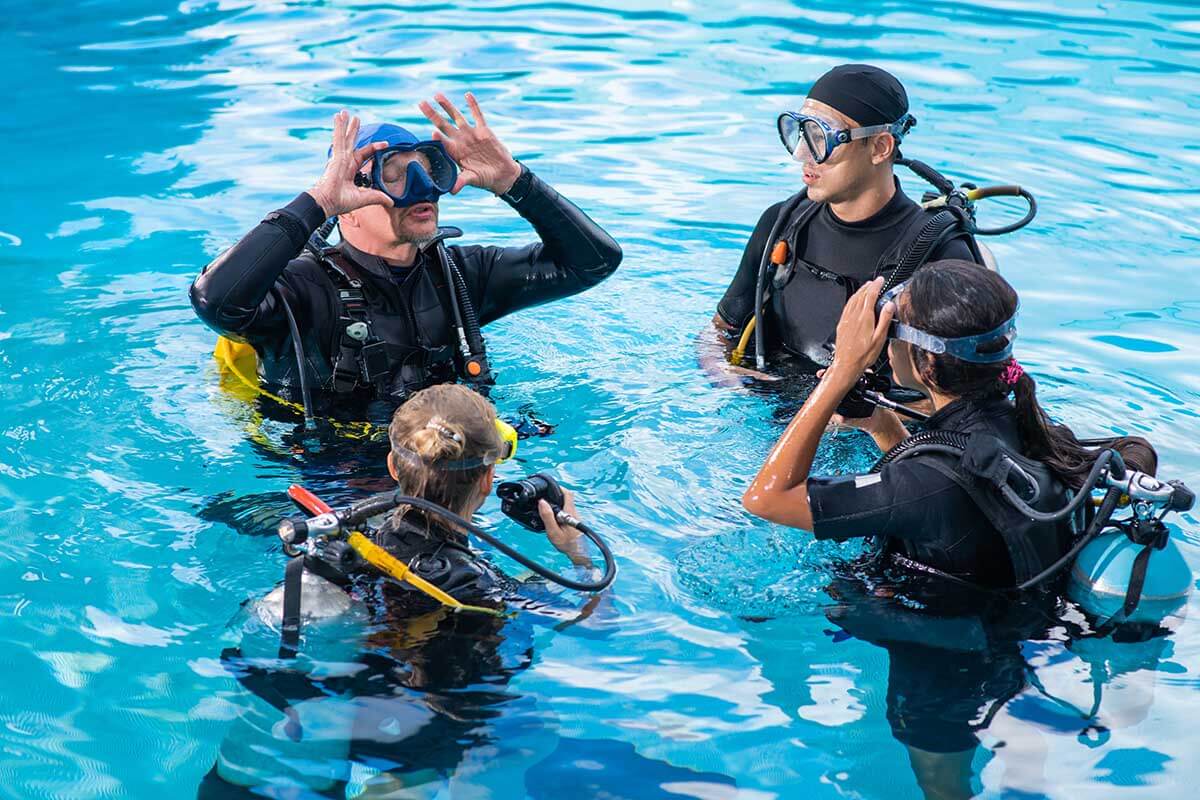
Many people are interested in learning to scuba dive, but don’t have diving friends and family to advise them. If you, or somebody you know, is thinking of learning to dive but not quite sure, former instructor Mark ‘Crowley’ Russell has some advice
Twenty-two years ago, there was no doubt in my mind that scuba diving was for me. The idea leapt out at me from the window of a travel agency during the bleak midwinter of 2000: an excellently-priced PADI Open Water course package in Sharm El-Sheikh with flights and hotel included. A few weeks later I walked into the Red Sea for the first time – and never really left.
Knowing what I know now, I would have encouraged my younger self to do a little more research before taking the plunge, something I spent a lot of time encouraging other people to do in the years after I became an instructor and realised that plenty of my potential students – for all their initial enthusiasm – were just not suited to a life underwater.
- Related: Learning to dive – 15 things you need to know before taking the plunge
- Related: Learning to dive – is scuba diving safe?
- Related: What to expect from a scuba diving course

Is water the right place for you?
During my time as an instructor, I had quite a few students who were eager to learn to dive but who went into panic mode the first time they popped their heads under waist-deep water. Conversely, I had quite a few students who were very nervous about learning to dive, but who overcame their fear, quite literally, within minutes of getting wet.
If you have any kind of concerns about getting into the open water of a lake, sea or ocean, then it is essential you have some experience in that environment before learning to dive. Snorkelling is a great introduction to open water – it is a safe and easy activity with several benefits.
Firstly there is the obvious introduction to the marine environment: this is what it looks like down there, this is how it feels, this is what you can see; it’s not a swimming pool.
Secondly, it familiarises people with the basics of dive equipment: the sensation of wearing a mask and having it leak; an introduction to the use of fins; breathing through a mouthpiece clamped between your teeth and learning the basics of airway control to keep the sea water out.
All of these things are relevant to scuba diving, and are all very useful experiences. If your first thought about learning to scuba dive is ‘will I enjoy being in the sea’, then you need to get in it first.
Do I need to be able to swim to to take a scuba diving course?
Most agencies require entry-level dive students to swim a distance of 200m continuously, and without swimming aids. Some agencies will allow you to use a mask, fins and snorkel, but over a longer distance of 300m. In some locations, these requirements can be superseded by local regulations, which invariably insist on the swimming, not the snorkelling.
You may also required to demonstrate that you can ‘comfortably maintain yourself in water too deep to stand up in’ by treading water or floating for 10 minutes.
You do not need to be an Olympic athlete, nor even a particularly good swimmer, to pass the swimming tests. The key point of the exercise is not a test of your ability, but that you have the strength and stamina to comfortably support yourself in deep water. If you can’t do this, then pool time is essential.

Am I medically fit to dive?
All dive students are required by internationally accepted training standards to complete a medical self-assessment prior to beginning training, which involves answering a series of questions about medical conditions which you may have, or may have suffered from in the past.
If you can answer ‘yes’ to any of the conditions listed on the form, then you must seek medical clearance from a doctor, preferably one trained in hyperbaric medicine.
By and large, if you are under 45 with no pre-existing medical conditions then you will probably pass the medical, but it is of the utmost importance that you are honest, even if you think your condition is relatively mild. Here is a simple fact: dishonest medical declarations result in fatalities.
In some locations, medical assessment by a doctor is mandatory, regardless of your physical condition. In most holiday destinations this is the exception, rather than the rule, but it is worth checking in advance.
You can view a copy of the form and download it here
A note on disabled diving
Scuba diving has been shown to be of immense benefit, both physically and psychologically, to people who have suffered life-changing injuries or suffered from mental trauma such as PTSD.
Physical disabilities do not necessarily preclude anybody from diving, and disabled divers can take regular agency courses as long as they are able to fulfil all the requirements of the course; independently operate their own equipment; and provide basic emergency support to another diver.
Specialist training courses are available for divers who may not be able to support themselves independently underwater.

Do I need to be fit to scuba dive?
You do not need to be an athlete to scuba dive, but you need to be in reasonably good shape.
Even though you might be weightless in water, you still need to carry heavy gear on your person and, as many divers can attest, trek across several hundred metres of ground to get from the spot where you kit up to the water. Underwater, being caught in a strong current is like pedalling a bike up a hill that has no summit and nowhere to stop, so you need to be able to perform a ‘moderate’ level of exercise.
The medical questionnaire asks if you can walk 1 mile/1.6km within 14 (formerly 12) minutes – so if climbing the stairs makes you wheeze then you may want to spend some time working on that before taking up diving.
Carrying extra body fat is not a barrier to diving if you are otherwise fit enough to perform the moderate exercise levels required, but it can cause problems elsewhere, such as having to carry extra lead weights on your person to keep you underwater.
Smoking is clearly not good for your overall health but it is not a barrier to diving, although if you are a smoker over the age of 45, then you will need to get medical clearance from a physician.
I’m nervous about scuba diving, is that a problem?
Nervousness is nothing to be ashamed about. Everybody had to be a newbie at some point, and even the most experienced divers have the occasional wobble.
A little bit of tension is a good thing – it helps to focus the mind while maintaining a healthy respect for the fact that we are visiting an environment in which we do not naturally belong.
Divers and students should be open and honest about their concerns, so they can be addressed before they turn into problems. I’ve said many times that I would prefer to dive with somebody who owned up to their fears rather than somebody who thought there was nothing to be nervous about.
If you go into panic mode at the sight of fish, however, you may need to find something else to do.

I want to learn to scuba dive, but I’d like to try it first.
Snorkelling is a great place to start but is obviously limited in terms of the benefits it can bring.
Almost all dive centres offer some form of ‘intro dive’, which are a great way to take your first breaths underwater without having to commit to the price of a full entry-level course – but with the caveat that these must be done by qualified dive professionals under the auspices of an approved diving agency.
There are plenty of armchair warriors who complain that intro dives are just money spinners for dive shops and agencies – and they are, as many people participate just to put a tick in a box on their list of things to do on holiday, but they are excellent tools to help potential, but uncertain, students decide if diving is right for them.
PADI’s Discover Scuba Diving (DSD) programme; SSI’s Try Scuba; BSAC’s Try Dive – whatever name the programme takes, the basic principles are the same: you get some basic safety training and a briefing in proper equipment use, then spend some time familiarising yourself with the underwater environment in the presence of a dive professional.
They can be conducted in pools or in the open water, if conditions are suitable – and heading into a proper scuba diving environment is definitely recommended if the option is available, as conditions are obviously substantially different from pools!
Finally, depending on how it’s conducted, the intro dive may count towards the first few sessions of an entry-level certification course. Most dive centres will deduct the cost of the try dive from the full course.
So, is diving right for you?
The short version of this article is that no matter how nervous or uncertain you might be, there are ways to help you address your concerns, and steps you can take to gain confidence before taking the plunge (pun absolutely intended!).
In the next article, we’ll have a look at exactly what’s involved in diver training once you’ve signed up for an entry level programme.



